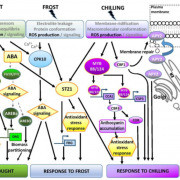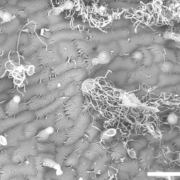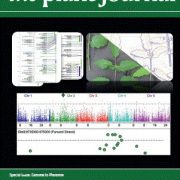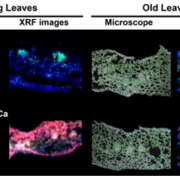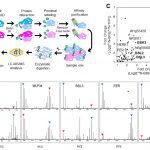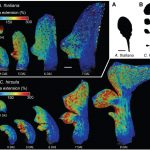A diversity of traits contributes to salinity tolerance of wild Galapagos tomatoes seedlings (bioRxiv)
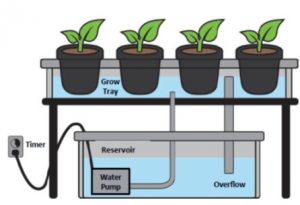 Domestication has been accompanied by a decrease in genetic diversity, so efforts to improve stress tolerance can be aided by exploring the crop’s wild relatives. Here, Pailles et al. examined salt tolerance in Galapagos tomatoes (Solanum cheesmaniae and Solanum galapagense), which grow “constantly splashed with seawater”. After growing the plants in 200 mM NaCl, the authors quantify eleven traits associated with salinity tolerance in several accessions of these two species, as compared to cultivated Solanum lycopersicum. The data show that the Galapagos tomatoes are more salt tolerant, and that this is associated with traits including potassium levels in leaves, although there is considerable natural variation in the mechanisms of salinity tolerance. One outcome of this work is that it provides a foundation for genetic analysis of these isolates. More broadly, the authors have made freely available all of the data and the tools for analyzing it, making this an excellent training resource. (Summary by Mary Williams) bioRxiv 10.1101/642876
Domestication has been accompanied by a decrease in genetic diversity, so efforts to improve stress tolerance can be aided by exploring the crop’s wild relatives. Here, Pailles et al. examined salt tolerance in Galapagos tomatoes (Solanum cheesmaniae and Solanum galapagense), which grow “constantly splashed with seawater”. After growing the plants in 200 mM NaCl, the authors quantify eleven traits associated with salinity tolerance in several accessions of these two species, as compared to cultivated Solanum lycopersicum. The data show that the Galapagos tomatoes are more salt tolerant, and that this is associated with traits including potassium levels in leaves, although there is considerable natural variation in the mechanisms of salinity tolerance. One outcome of this work is that it provides a foundation for genetic analysis of these isolates. More broadly, the authors have made freely available all of the data and the tools for analyzing it, making this an excellent training resource. (Summary by Mary Williams) bioRxiv 10.1101/642876


